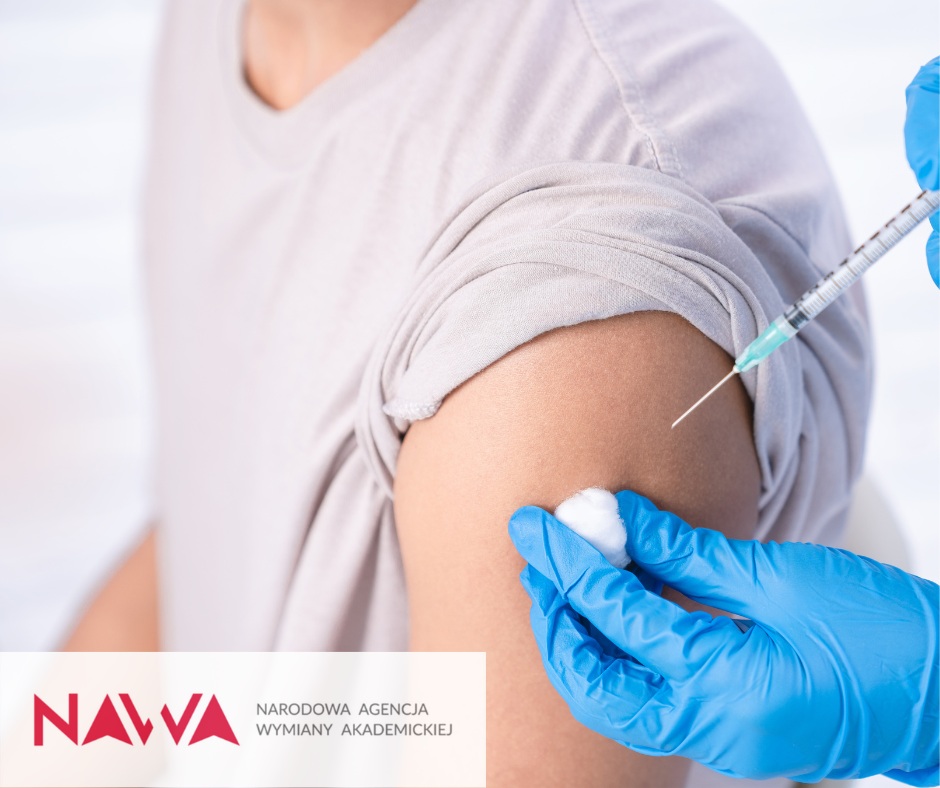On 16 August 2024, the intervention project ‘Increasing migrants’ access to vaccine information in the Tri-City’ was completed. As part of the grant, educational and engagement activities were carried out on access to vaccination knowledge among refugees, differences in vaccination calendars, low enforcement of the obligation to vaccinate and the growing activity of anti-vaccination movements. The project resulted in the production of a document with recommendations for health care institutions on increasing vaccination awareness and prevention activities for Ukrainian migrants.
The document ‘Recommendations for healthcare institutions on vaccination awareness and prevention activities for Ukrainian migrants’ was prepared by the project team: Elżbieta Czapka, PhD (project manager, UG), Irena Chawrilska, PhD (UG), Weronika Kamińska-Skrzyńska, PhD (GUMed) and Jolanta Mrozek-Kwiatkowska, MA (UG).
Cooperation between academia and migrants
The creation of the Recommendation was the result of a series of intervention meetings attended by Polish doctors and migrants from Ukraine. Participants had the opportunity to learn more about adult and child vaccination in Poland and the functioning of the Polish health care system itself. Practical tips on how to use healthcare facilities were provided by doctors working in them. In total, more than 200 migrants took part in the on-site and online meetings.
‘Six specialists who run their daily medical practice in clinics and hospitals in Gdansk, Gdynia or Sopot have been invited to cooperate. Many of them are socially committed in the context of education in health-promoting behaviour,’ points out dr Elżbieta Czapka.
The Polish team was substantively supported throughout the project by researchers from the Pandemic Centre based in the Alrek Health Cluster, Bergen: Prof. Esperanza Diaz – Director of the Centre, Marta-Johanna Svendsen and Andrea Magugliani.
The activities were divided into three stages: diagnosis, intervention and inclusion, and monitoring in the Tricity area. As the Bergen partners pointed out, cooperation between academia and migrants in times of crisis is possible and mutually beneficial.
“We would like to thank all the people who worked with us, especially the ladies who agreed to act as ambassadors for the migrants and the doctors who participated in the interventions,” says Elżbieta Czapka, PhD, project manager. “We would like to thank all those who decided to trust us and came to the meetings organised by us, where information about the vaccination programmes in place in Poland was provided.”
Migrants are the first source of information for other migrants
As the members of the project team emphasise, during the meetings with the migrants, special care was taken to ensure that the dialogue between migrants and experts was based on trust and mutual respect. Both expert support and the declarations of the migrants themselves were analysed. Based on the findings of the intervention meetings and the accompanying in-depth interviews, a package of seven recommendations for the inclusion of migrants in vaccination programmes and other health promotion actions was prepared.
Among other things, the authors highlighted the need for information campaigns targeting migrants. Information care should be provided not only to adolescents and adults, but also to senior citizens, in particular those with chronic diseases and women. “Our research has shown that in Ukrainian families it is mainly women who take care of the health of individual family members,” reads the document. Migrants also often pointed to the information chaos resulting from multiple sources of information with questionable reliability. According to the project team, it would be a good idea to create a website in Ukrainian on health issues and disseminate information about it in the places where migrants stay.
Another challenge identified by the authors is ensuring equal access to primary health care. From the observations made during the intervention, it is clear that migrants often have no knowledge of how the Polish health care system works. ‘Our project identified the important role of the primary care physician in the context of providing migrants with information on available vaccinations ’, the project team points out. Unfortunately, migrants from Ukraine are often not familiar with specialised medical terms in Polish, which often makes it difficult for them to communicate with their doctor. The authors recommend organising training in doctor-patient communication at local and supra-local levels.
They found that migrants’ first source of information on vaccination and healthcare is other migrants. ‘This means that it is extremely important to reliably inform individual patients about the vaccinations offered in Poland for specific age groups. They will pass on this information to other migrants’, point out the members of the project team.
The entire text of the ‘Recommendations for healthcare institutions on raising awareness of vaccination and prevention activities for Ukrainian migrants’ can be read here:
The project ‘Increasing migrants’ access to vaccine information in the Tri-City‘ funded by the NAWA Intervention Grants programme of the National Academic Exchange Agency.


